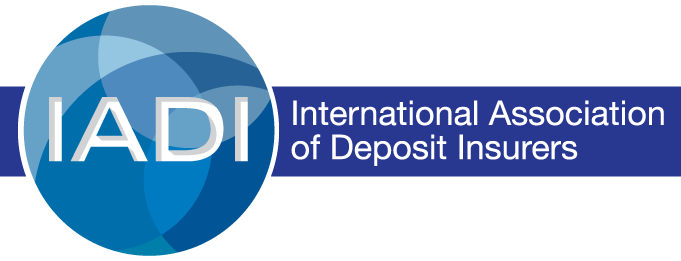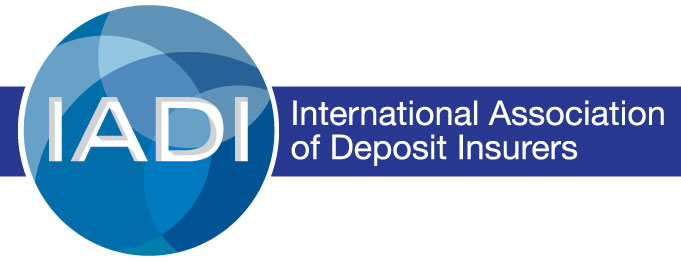Evolving Standards: Reviewing the IADI Core Principles for Future Resilience
Speech by Eva Hüpkes, IADI Secretary General, during the IADI 2024 Annual Conference Hosted by the Deposit Insurance Corporation Japan (DICJ) titled “Future Proofing the Core Principles: Raising the Bar for Deposit Insurance Systems”
Good morning,
First and foremost, I would like to extend my deepest gratitude to Governor Mitsui and the staff of the Deposit Insurance Corporation of Japan (DICJ) for graciously hosting the 2024 annual conference and meetings here in Tokyo. Your remarkable efforts and hospitality have made this event a success, and we are immensely grateful for the warm welcome and meticulous planning. We are fortunate to experience Tokyo’s vibrant autumn colors, which add a special charm to our gathering.
The theme of this year’s conference is “Future Proofing the Core Principles.” This reminds me of a wonderful Japanese fairy tale, ‘The Tale of Urashima Taro,’ which dates back to the 8th century and speaks to the themes of future and past. It tells the story of a kind young fisherman named Urashima Taro. One day, while walking along the beach, Taro notices a group of children tormenting a sea turtle. He rescues the turtle and releases it back into the sea. The next day, while fishing, the turtle returns and, to Taro’s surprise, it speaks. The turtle invites him to visit the Dragon Palace under the sea as thanks for his kindness. The young fisherman agrees and is taken to a magnificent underwater palace where he meets a beautiful princess and spends several days enjoying its wonders. Eventually, Taro begins to miss his home and asks to return to his village. The princess reluctantly agrees and gives him a mysterious box, warning him never to open it.
When Taro returns to his village, he finds that everything has changed. His home is gone, and no one recognizes him. He learns that many years have passed since he left, even though it felt like only a few days to him. In despair and unable to adapt, he opens the box. The box contains his lost time, and opening it transforms him instantly into an old man.
Imagine if our fisherman had been a bank customer resurfacing after a decade. He would find himself in a high-tech wonderland where his face is the new key to his bank account, where hand-held devices handle all his payments with just a tap or swipe. Fast payment systems make it possible to transfer money instantly. He would be chatting with bots instead of real bank tellers and obtaining (real or fake) news and financial information through social media channels. His savings would be spread through deposit aggregators to banks with the highest interest rates, relying on artificial intelligence to do the tracking. Some (electronic) money would be conveniently held in virtual wallets on his phone.
The rapid pace of fintech has changed the way we bank. Mobile banking is the new normal, and neo banks—those entirely digital banks without a single physical branch—have drastically changed the way we manage our money.
Deposit insurance systems must evolve with new technologies and market conditions to stay effective, efficient, and relevant. One key takeaway from both the Great Financial Crisis and last year’s episodes of stress is that reliable and trustworthy depositor protection is crucial. Without it, depositors may panic and withdraw funds indiscriminately during a crisis, severely undermining confidence in the financial system. Clearly, the importance of effective deposit insurance systems cannot be overstated. They not only protect depositors but also underpin financial stability. In a rapidly changing financial landscape, robust deposit insurance remains a vital pillar of trust and security and helps to promote responsible and constructive innovation.
In my remarks, I would like to reflect on: (i) the importance of the IADI Core Principles as an international standard; and (ii) the importance of “future proofing” them.
IADI acts as the primary global forum for the sharing of knowledge and expertise on deposit insurance and promotes cooperation and coordination among the authorities involved in the management and resolution of bank failures. The objective is to protect insured depositors and safeguard the stability of financial systems. The international standard for deposit insurance systems, the Core Principles of Effective Deposit Insurance Systems, was initially issued in 2009 jointly by the International Association of Deposit Insurers (IADI) and the Basel Committee on Banking Supervision (BCBS). The Core Principles are emblematic of effective international cooperation and coordination in the financial regulation domain. They have served us well as a guiding framework for both new and existing deposit protection schemes around the world.
International standards provide a common language and a benchmark for policymakers, despite not being directly legally binding. Crafting international standards is a complex task. It is necessary to reach a broad-based consensus. However, jurisdictional practices will inevitably differ, and approaches will not always be aligned. The Core Principles are deliberately outcome-focused, describing the results to be reached while acknowledging that jurisdictions may adopt different institutional arrangements and approaches to achieve them. The Core Principles are intended as minimum standards for effective deposit insurance practices. Authorities are free to put in place supplementary measures that they deem necessary to achieve effective deposit insurance in their jurisdictions. An assessment of compliance with the Core Principles can be a useful tool for jurisdictions that are implementing, reviewing, or actively reforming their deposit insurance systems. It can help identify strengths and weaknesses in the existing deposit insurance system and actions needed to address them.
The Core Principles have been a success. However, to remain credible, they need to be reviewed periodically to ensure they remain relevant in a changing banking environment. The last review took place a decade ago and was intended to draw out the lessons of the Great Financial Crisis.
Now, ten years later, the banking turmoil of 2023 has provided us with valuable lessons about the operation of our financial safety nets. The review of the Core Principles that was launched earlier this year provides an opportunity to reflect on these lessons and on how the ongoing digitalisation of finance will affect deposit insurance systems. It is also an opportunity to set out new ambitious targets to ensure that the Core Principles remain relevant in the future.
Digitalisation may amplify traditional financial risks and accelerate the speed of bank runs. But what exactly does this mean for the stability of our financial systems? How can we prepare for these accelerated risks and mitigate their impact? In addition to these traditional risks, digitalisation introduces new challenges. For instance, how can we effectively manage heightened cyber risks? What measures can be put in place to safeguard against these threats, and how can a bank under cyber-attack be resolved? How can deposit insurers themselves guard against cyber attacks?
Another concern is the extensive reliance on third-party service providers, such as cloud services. How can we ensure their reliability and security? The use of artificial intelligence (AI) also brings its own set of risks. How can we ensure that AI algorithms are transparent, fair, and free from bias? What safeguards are necessary to prevent misuse or unintended consequences? Furthermore, the use of large datasets raises concerns about data privacy and the potential misuse of depositor data. How can we protect depositor information while still leveraging its potential for innovation? It is crucial that authorities, including deposit insurers, keep pace with the latest technological developments. This requires them to continually upskill their staff and hire personnel with the necessary expertise.
The landscape of banking is poised for significant transformation in the future with the advent of deposit tokenisation and the increasing adoption of digital currencies, including central bank digital currencies (CBDCs). A recent report by the Bank for International Settlements (BIS) for the G20 delves into the potential implications of a tokenised environment and its impact on the operation of regulated financial markets. The report explores how these innovations could reshape financial transactions, enhance efficiency, and introduce new dynamics within the financial system. It underscores the potential of tokenisation to enhance transparency in financial markets and discusses the importance of establishing robust regulatory frameworks to manage risks associated with tokenised assets. The report also emphasizes the need for international cooperation to ensure interoperability and standardization and, lastly, suggests that CBDCs could play a pivotal role in supporting a tokenised financial ecosystem. Finally, we need to be prepared for the potential paradigm shift that may be brought about by the advent of quantum computing.
Going forward, as we have heard from the President of IADI, understanding and addressing the impact of technological innovation and digitalisation will be a key priority for IADI in the year ahead. As our members face common challenges, we shall work together to find common solutions.
While digitalisation may bring about new risks, there is also the potential for great benefits. Technology may help deposit insurers address some key challenges, such as facilitating early detection through improved monitoring capabilities, preparing for failures, and accelerating reimbursements. There could be value in fostering greater collaboration to jointly build capacities and develop tools or applications that members can use to address these challenges. Working together to develop new toolkits would allow our members to learn from each other’s experiences and to reap economies of scale and other efficiencies through pooling and sharing resources and using technology to address some of the most pressing challenges.
Conclusion
Let me conclude by recalling the lesson from the fisherman’s tale: it is important not to live in the past but to embrace the future and continuously adapt our deposit insurance systems to meet the needs of an ever-evolving financial landscape. Financial stability is a public good and even a public necessity, the maintenance of which requires continued effective cooperation among financial safety net participants, including deposit insurers, at jurisdictional and international levels.
IADI will continue to promote international cooperation, and this conference will provide a valuable opportunity to explore many of these issues further. I wish you all an engaging discussion.

